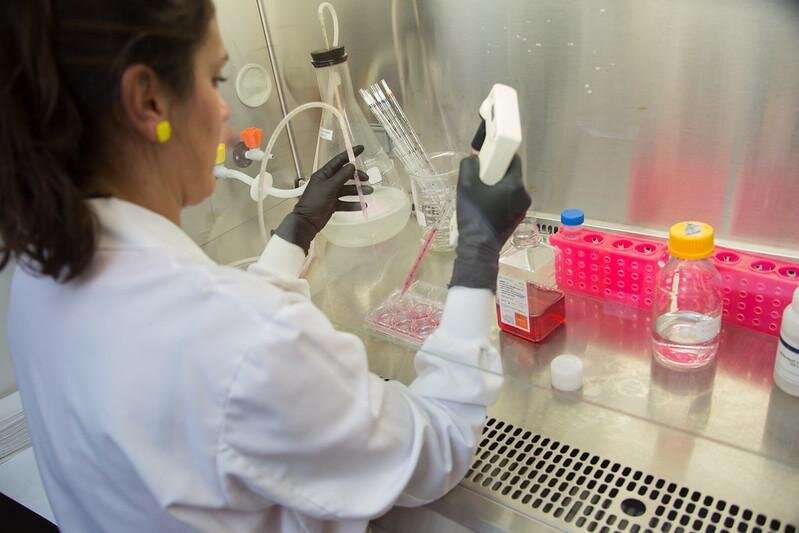Postdoctoral research fellow and collaborator Angela Bononi in Carbone's lab. Credit: University of Hawaii at Manoa
New research has found that individuals born with inherited mutations of the "BLM gene' are more susceptible to developing mesothelioma, especially upon exposure to asbestos. The study was conducted by University of Hawaiʻi Cancer Center researcher Michele Carbone and collaborators, and was published in the Proceedings of the National Academy of Sciences.
Individuals who inherit two mutated copies of the BLM gene are affected by the rare Bloom Syndrome, characterized by short stature, a red rash over the nose and cheeks, mild immune deficiency and an increased susceptibility to develop various cancers. However, approximately one in every 900 individuals is born with only one inherited mutation of the BLM gene. The cells of these individuals produce only half of the normal amount of BLM protein, which was suspected, and has now been proven, to increase their risk of developing cancer.
Carbone's previous discovery of the BAP1 mutation, which signifies an increased susceptibility to cancer, led to the investigation of other genetic mutations with similar functions—including those of the BLM gene. This resulted in the establishment of a specific clinical trial at the National Cancer Institute in Bethesda, Maryland, that addresses the potential future healthcare needs of carriers of germline mutations, who have a high risk of developing mesothelioma. In this trial, individuals born with genetic mutations are followed for prevention, early detection and personalized therapy when they develop cancer.
More information: Angela Bononi et al. Heterozygous germline BLM mutations increase susceptibility to asbestos and mesothelioma, Proceedings of the National Academy of Sciences (2020). DOI: 10.1073/pnas.2019652117
Journal information: Proceedings of the National Academy of Sciences
Provided by University of Hawaii at Manoa
























